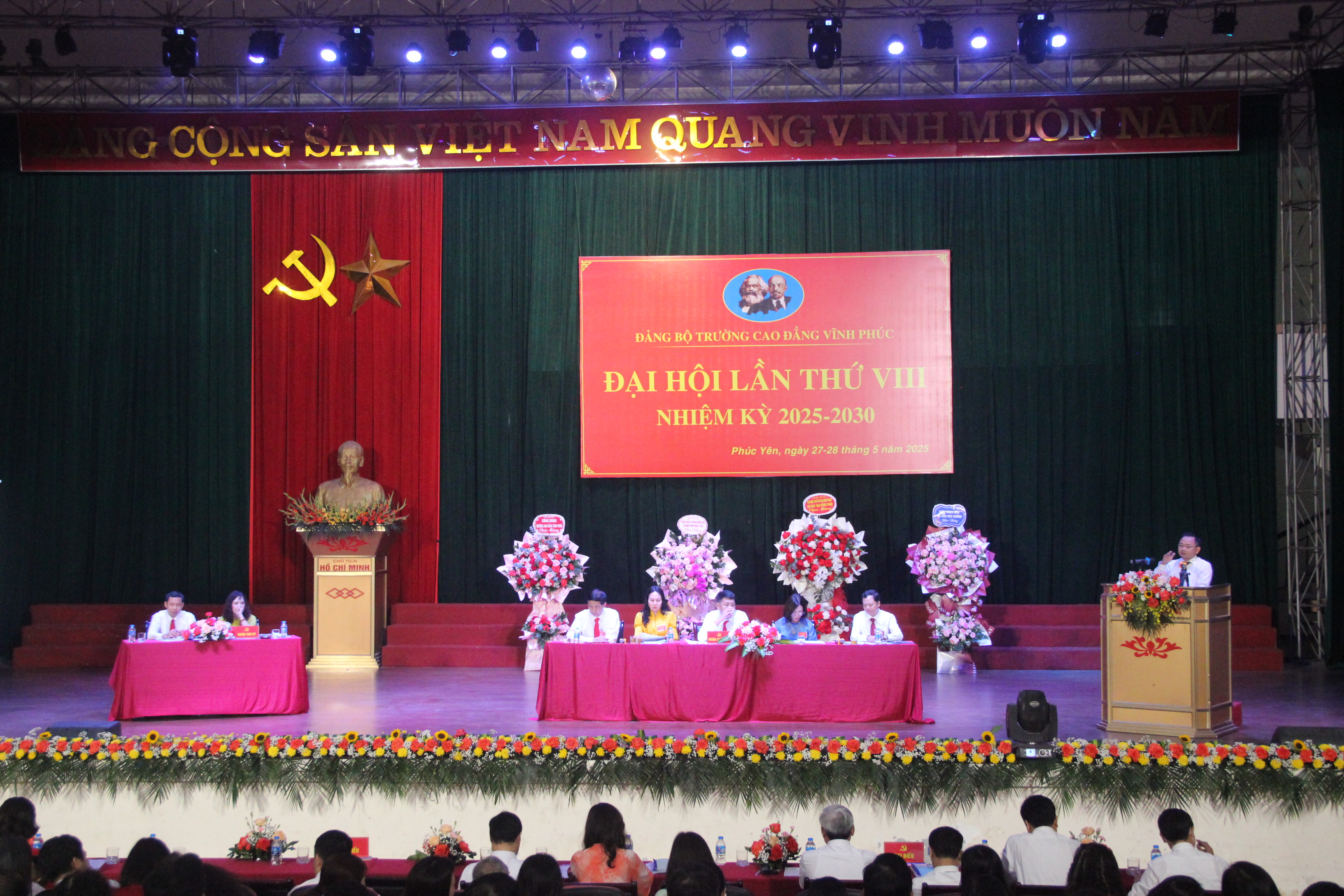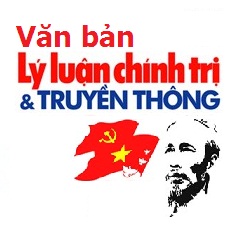 »
Tin Tức
»
Bài viết - Trao đổi
»
Tin Tức
»
Bài viết - Trao đổi
Economic Globalization
Thứ hai - 26/10/2015 08:27
While developing countries are opening to the world market they may not gain many advantages, but instead face with many disadvantages and risks because of unfair Free Trade Agreements. The impacts of Free Trade Agreements in economic globalization process are increasingly controversial. Many people believe that economic globalization will inevitably create enormous benefits for people all over the world. However, others complain that economic globalization make the gap between developed and developing countries far more significant and is the causes of unemployment and inequality in the third world. Furthermore, it may not be an effective way to reduce poverty. This essay will discuss the negative impacts of economic globalization through Free trade agreements and argue that globalization may not create benefits for people all over the world instead it may result in disadvantages for the third world.
The Free trade agreements which has been represented by World Trade Organization (WTO), North American Free Trade agreement (NAFTA), the European Union (EU), have abused the system of the international trading rules to protect the economic interests of all their members, particularly the interests of the US and EU. The aim of free trade agreements is fairy clear that it would bring the benefits to all nations by applying the economic laws of comparative advantage. But it is only theoretical because the United States (US) and EU use their economic power to open up markets in which they have more competitive strengths and protect the industries in which they can not compete with other nations (Davidson, 2002). In addition, exported goods from developing countries can be dumped on the US and EU market because of protectionism policy there. For example, in order to protect their agriculture, rich countries spend $1 billion every day for agricultural subsidies. Consequently, agricultural surpluses are dumped on world markets; damage the livelihoods of millions of smaller holder farmers in poor countries (Oxfam, 2002). Therefore, The Free Trade agreements could even be argued as a deterrent for poor countries’ economic growth.
The negative impact of Free trade agreements on developing countries not only leads to heavy economic losses but also threaten the stability of developing countries’ economies. It is not easy for developing countries to export their goods and commodities to developed countries. High tariff becomes barriers which prevent developing countries from exporting their commodities to rich countries. This causes developing countries to lose $100 billion a year when exporting to rich countries’ markets because they have to pay tax four times higher than those encountered by rich countries (Oxfam, 2002). Vietnam has been imposed by the U.S. Dept of Commerce to pay more tax from 38 to 64 percent when export Vietnamese catfish fillets, also known as "basa" and "tra," to the US market in 2003. It is because the Catfish Farmers of America filed an anti-dumping suit against their Vietnamese competitors, claiming they had unfairly captured 20% of U.S. market share by selling at below-market prices (Lanier, 2003). However, the reason which led to the fact that Vietnamese catfish fillets less expensive is because labor and feed costs are lower in Vietnam, not because the Vietnamese industry is engaging in predatory pricing behavior. Another problem is that under high pressure of International Monetary Fund (IMF) and the World Bank many developing countries unwillingly open their economies to the world market without security measures so it may lead to the damaging consequences for these countries. Joseph Stiglitz compared the economic policies which the WTO is applying for the third world as Opium War in the 19th century (Davidson, 2002).
Economic globalization through Free trade agreements may be a cause of unemployment in developing countries, especially women are victims, and it may not solve poverty problem. In developing countries the majority of workforce in agricultural field is women. When rich countries subsidize their agriculture it leads to the situation that developing countries can not export their agricultural commodities, as a result unemployment is inevitable. Not only women in the third world but also those whose country is the members of free trade agreements lose jobs because of free trade agreements. For example, in Mexico – a member of NAFTA, many small farmers have been unemployed because they could not compete with big agribusiness companies so Mexican women have to migrate with their families to cities to find work and their wages often are not enough to sustain their lives because of high living cost there. Mexican women have to work in the harmful environment and they are often sexually harassed. Hence, the Free trade agreements could not be able to create more jobs but instead of increasing unemployment.
On the other hand, some people believe that Economic globalization may effectively solve world poverty problems. For example, there are some ideas which believe that: “International trade has potential to act as a powerful catalyst for poverty reduction, as the experience of East Asia demonstrates” (Watkins, 2002). However, it is necessary to note that there is not any evidence provided support for these statements. Actually, there have been no improvements for decades of Trade in term of reducing poverty. In 1980 10% of richest countries increased 77 times greater in income than those in 10% poorest countries. By 1999 this gap increased to 122 times and 400 millions people lived on very low income (Lebaur, 1999). Hence, poverty could not be solved completely by Economic globalization through Free trade agreements.
To conclude, this essay has tried to examine some negative effects of economic globalization through Free trade agreements. The negative impacts of Free Trade Agreements on the third world appear to be unmoral and unacceptable. It leads to many people can not believe in the success of globalization. For the sake of billions poor people over the world rich countries need to revise and modify their economic policies and Free Trade Agreements need to treat fairly among all developing countries. This could help people gain benefits from globalization.
References
Davidson, K (2002), Free world trade? It’s more like a rehashed Opium war, Theage
Lanier, R. (2003). Bye-Bye, Basa! Duties Chase Vietnamese Catfish Away. Consumer For New World Trade
In recent years, Globalization has become an indispensable phenomenon in the world and the development of international economy is closely related to the economic globalization
While developing countries are opening to the world market they may not gain many advantages, but instead face with many disadvantages and risks because of unfair Free Trade Agreements. The impacts of Free Trade Agreements in economic globalization process are increasingly controversial. Many people believe that economic globalization will inevitably create enormous benefits for people all over the world. However, others complain that economic globalization make the gap between developed and developing countries far more significant and is the causes of unemployment and inequality in the third world. Furthermore, it may not be an effective way to reduce poverty. This essay will discuss the negative impacts of economic globalization through Free trade agreements and argue that globalization may not create benefits for people all over the world instead it may result in disadvantages for the third world.
The Free trade agreements which has been represented by World Trade Organization (WTO), North American Free Trade agreement (NAFTA), the European Union (EU), have abused the system of the international trading rules to protect the economic interests of all their members, particularly the interests of the US and EU. The aim of free trade agreements is fairy clear that it would bring the benefits to all nations by applying the economic laws of comparative advantage. But it is only theoretical because the United States (US) and EU use their economic power to open up markets in which they have more competitive strengths and protect the industries in which they can not compete with other nations (Davidson, 2002). In addition, exported goods from developing countries can be dumped on the US and EU market because of protectionism policy there. For example, in order to protect their agriculture, rich countries spend $1 billion every day for agricultural subsidies. Consequently, agricultural surpluses are dumped on world markets; damage the livelihoods of millions of smaller holder farmers in poor countries (Oxfam, 2002). Therefore, The Free Trade agreements could even be argued as a deterrent for poor countries’ economic growth.
The negative impact of Free trade agreements on developing countries not only leads to heavy economic losses but also threaten the stability of developing countries’ economies. It is not easy for developing countries to export their goods and commodities to developed countries. High tariff becomes barriers which prevent developing countries from exporting their commodities to rich countries. This causes developing countries to lose $100 billion a year when exporting to rich countries’ markets because they have to pay tax four times higher than those encountered by rich countries (Oxfam, 2002). Vietnam has been imposed by the U.S. Dept of Commerce to pay more tax from 38 to 64 percent when export Vietnamese catfish fillets, also known as "basa" and "tra," to the US market in 2003. It is because the Catfish Farmers of America filed an anti-dumping suit against their Vietnamese competitors, claiming they had unfairly captured 20% of U.S. market share by selling at below-market prices (Lanier, 2003). However, the reason which led to the fact that Vietnamese catfish fillets less expensive is because labor and feed costs are lower in Vietnam, not because the Vietnamese industry is engaging in predatory pricing behavior. Another problem is that under high pressure of International Monetary Fund (IMF) and the World Bank many developing countries unwillingly open their economies to the world market without security measures so it may lead to the damaging consequences for these countries. Joseph Stiglitz compared the economic policies which the WTO is applying for the third world as Opium War in the 19th century (Davidson, 2002).
Economic globalization through Free trade agreements may be a cause of unemployment in developing countries, especially women are victims, and it may not solve poverty problem. In developing countries the majority of workforce in agricultural field is women. When rich countries subsidize their agriculture it leads to the situation that developing countries can not export their agricultural commodities, as a result unemployment is inevitable. Not only women in the third world but also those whose country is the members of free trade agreements lose jobs because of free trade agreements. For example, in Mexico – a member of NAFTA, many small farmers have been unemployed because they could not compete with big agribusiness companies so Mexican women have to migrate with their families to cities to find work and their wages often are not enough to sustain their lives because of high living cost there. Mexican women have to work in the harmful environment and they are often sexually harassed. Hence, the Free trade agreements could not be able to create more jobs but instead of increasing unemployment.
On the other hand, some people believe that Economic globalization may effectively solve world poverty problems. For example, there are some ideas which believe that: “International trade has potential to act as a powerful catalyst for poverty reduction, as the experience of East Asia demonstrates” (Watkins, 2002). However, it is necessary to note that there is not any evidence provided support for these statements. Actually, there have been no improvements for decades of Trade in term of reducing poverty. In 1980 10% of richest countries increased 77 times greater in income than those in 10% poorest countries. By 1999 this gap increased to 122 times and 400 millions people lived on very low income (Lebaur, 1999). Hence, poverty could not be solved completely by Economic globalization through Free trade agreements.
To conclude, this essay has tried to examine some negative effects of economic globalization through Free trade agreements. The negative impacts of Free Trade Agreements on the third world appear to be unmoral and unacceptable. It leads to many people can not believe in the success of globalization. For the sake of billions poor people over the world rich countries need to revise and modify their economic policies and Free Trade Agreements need to treat fairly among all developing countries. This could help people gain benefits from globalization.
References
Davidson, K (2002), Free world trade? It’s more like a rehashed Opium war, Theage
Lanier, R. (2003). Bye-Bye, Basa! Duties Chase Vietnamese Catfish Away. Consumer For New World Trade
Full text on-line available
http://www.cwt.org/news/Articles/2003%20March/Basa.htm
http://www.cwt.org/news/
Lebaur (2006), Trade and more trade, what’s all the fuss? 5B EFS listening note taking- Materials Oxfam (2002), Rigged Rules and Double standards Trade Globalization and the fight against poverty, 5B EFS reference bookOxfam, (date unknown), Ten facts about international trade, globalisation and the wealth divideFull text online available:
http://www.maketradefair.com/assets/english/press_ten_facts.doc
Women's Issues and Trade Agreements. Citizens Trade Campaign
http://www.maketradefair.com/assets/english/press_ten_facts.doc
Women's Issues and Trade Agreements. Citizens Trade Campaign
Full text on-line available <http://www.citizenstrade.org/women.php>
http://www.citizenstrade.org
Watkins, K (2002). Making globalization work for the poor, Finance and Development
Hiểu Nguyễn
Những tin mới hơn
Những tin cũ hơn
Ý kiến bạn đọc
Bộ đếm
![]() Đang truy cập :
11
Đang truy cập :
11
•Máy chủ tìm kiếm : 1
•Khách viếng thăm : 10
![]() Hôm nay :
673
Hôm nay :
673
![]() Tháng hiện tại
: 35069
Tháng hiện tại
: 35069
![]() Tổng lượt truy cập : 6563441
Tổng lượt truy cập : 6563441
Văn bản chỉ đạo các cấp
•Tin tiêu điểm
-
 THÔNG BÁO LỊCH THI NĂNG KHIẾU, GDMN, NGHỆ THUẬT NĂM 2025
THÔNG BÁO LỊCH THI NĂNG KHIẾU, GDMN, NGHỆ THUẬT NĂM 2025
-
 THÔNG BÁO Trả bằng tốt nghiệp cho sinh viên lớp K26A- CĐMN hệ cao đẳng Chính quy
THÔNG BÁO Trả bằng tốt nghiệp cho sinh viên lớp K26A- CĐMN hệ cao đẳng Chính quy
-
 THÔNG TIN TUYỂN SINH NĂM 2025 - Hình thức đào tạo: Chính quy
THÔNG TIN TUYỂN SINH NĂM 2025 - Hình thức đào tạo: Chính quy
-
 Mẫu phiếu đăng ký xét tuyển dành cho thí sinh đăng ký Trường Cao Đẳng Vĩnh Phúc
Mẫu phiếu đăng ký xét tuyển dành cho thí sinh đăng ký Trường Cao Đẳng Vĩnh Phúc
-
 Đại hội Đảng bộ Trường Cao đẳng Vĩnh Phúc lần thứ VIII, nhiệm kỳ 2025 – 2030
Đại hội Đảng bộ Trường Cao đẳng Vĩnh Phúc lần thứ VIII, nhiệm kỳ 2025 – 2030
-
 THÔNG TIN TUYỂN SINH CAO ĐẲNG NĂM 2025 NGÀNH GIÁO DỤC MẦM NON - HỆ VỪA HỌC VỪA LÀM
THÔNG TIN TUYỂN SINH CAO ĐẲNG NĂM 2025 NGÀNH GIÁO DỤC MẦM NON - HỆ VỪA HỌC VỪA LÀM
-
 ĐỀ ÁN TUYỂN SINH NĂM 2025 - TRƯỜNG CAO ĐẲNG VĨNH PHÚC
ĐỀ ÁN TUYỂN SINH NĂM 2025 - TRƯỜNG CAO ĐẲNG VĨNH PHÚC
-
 Trường Cao đẳng Vĩnh Phúc gặp mặt chúc mừng sinh viên Lào nhân dịp Tết cổ truyền CHDCND Lào Bunpimay
Trường Cao đẳng Vĩnh Phúc gặp mặt chúc mừng sinh viên Lào nhân dịp Tết cổ truyền CHDCND Lào Bunpimay
-
 Chào mừng kỷ niệm 94 năm ngày thành lập Đoàn TNCS Hồ Chí Minh (26/3/1931)
Chào mừng kỷ niệm 94 năm ngày thành lập Đoàn TNCS Hồ Chí Minh (26/3/1931)
-
 Đại hội các Chi bộ Trường Cao đẳng Vĩnh Phúc (Nhiệm kỳ 2025-2027)
Đại hội các Chi bộ Trường Cao đẳng Vĩnh Phúc (Nhiệm kỳ 2025-2027)


 Xem phản hồi
Xem phản hồi Gửi phản hồi
Gửi phản hồi







